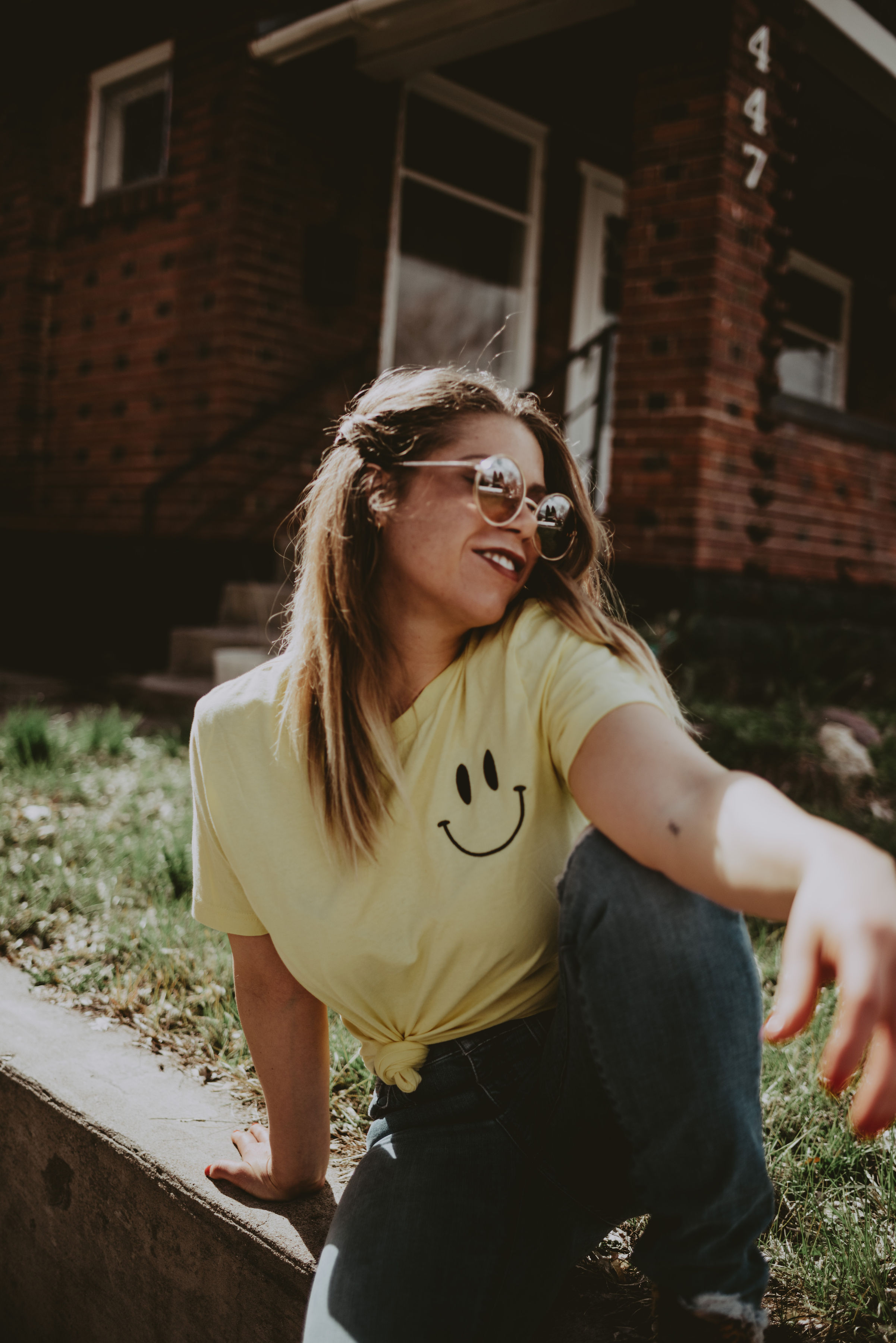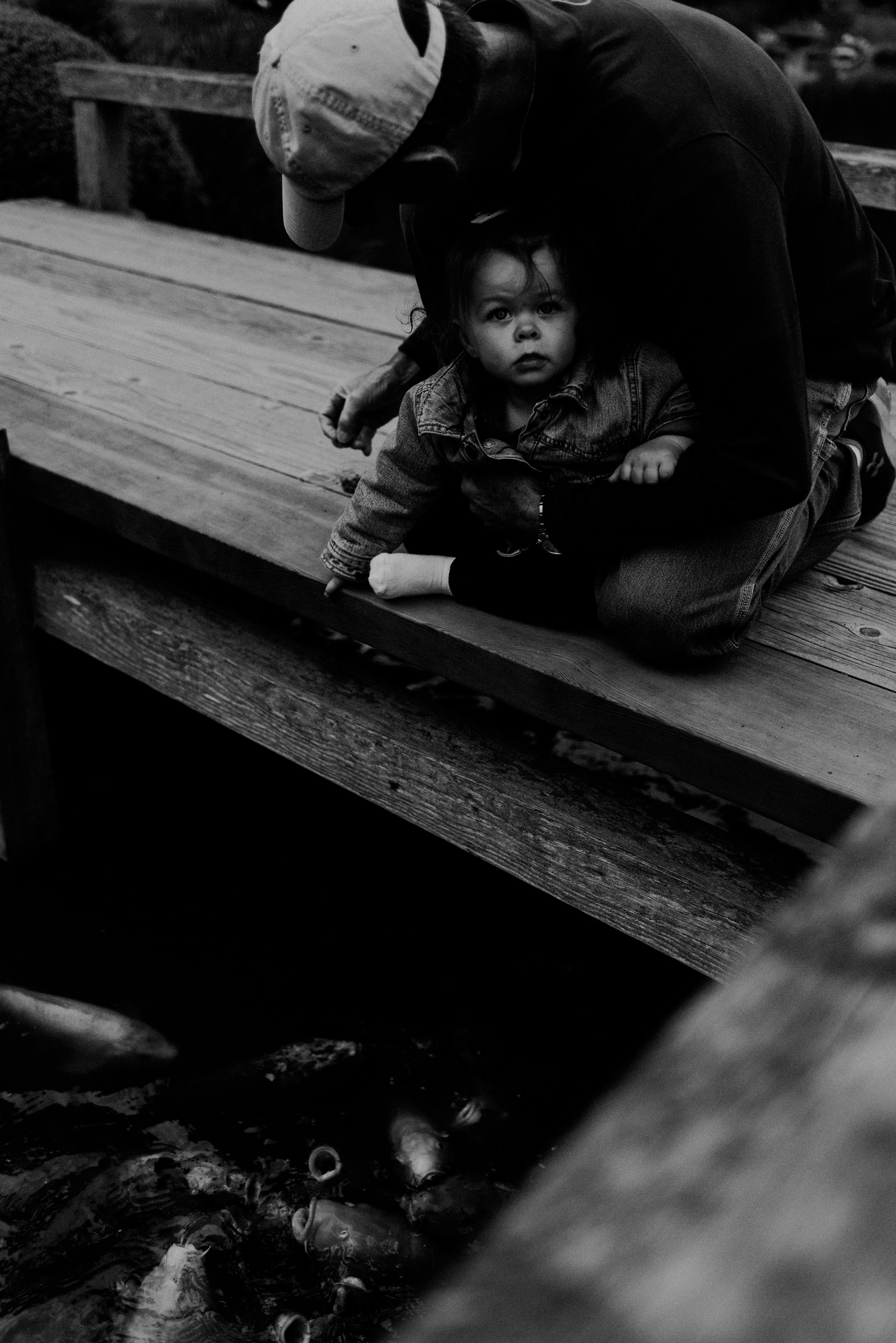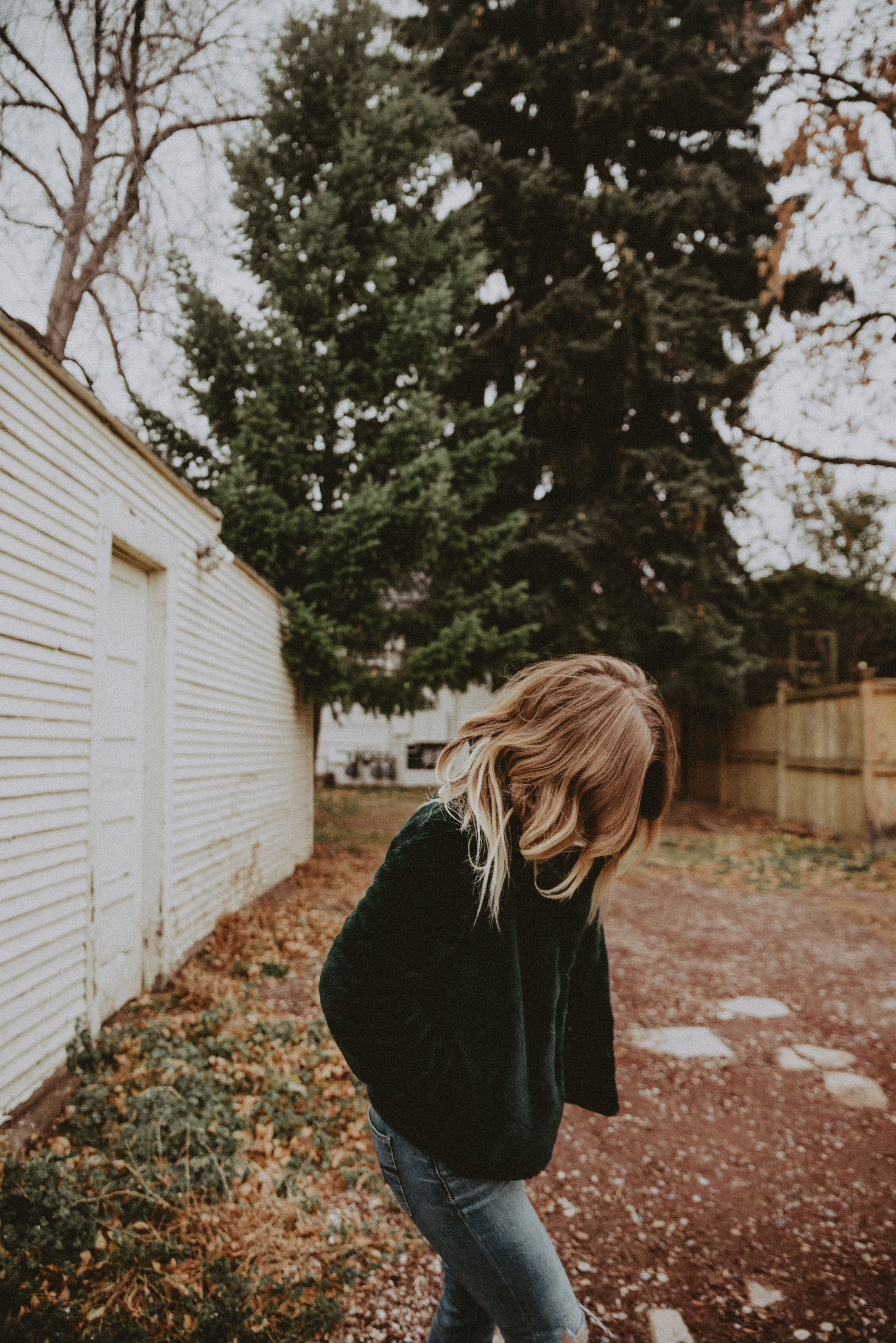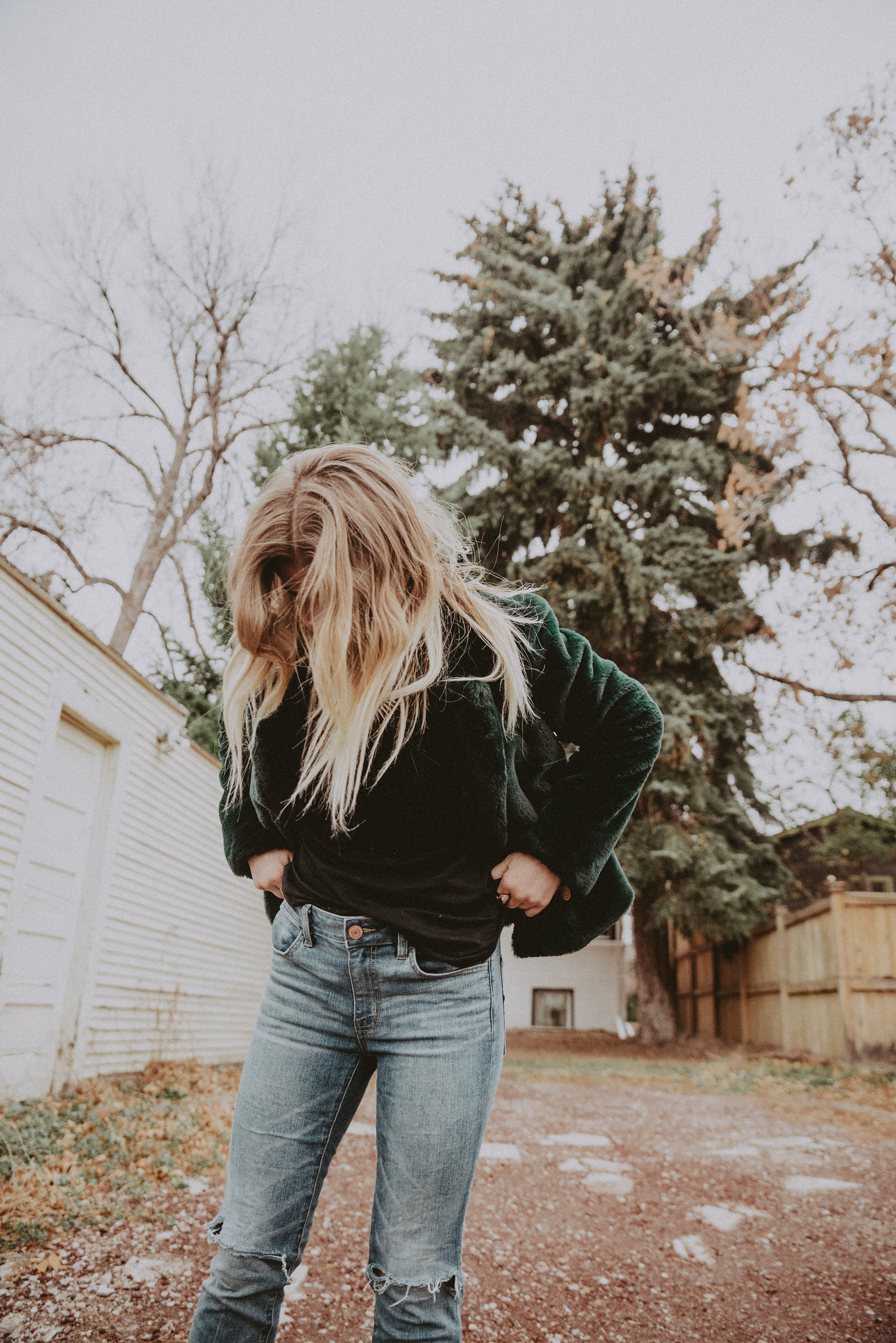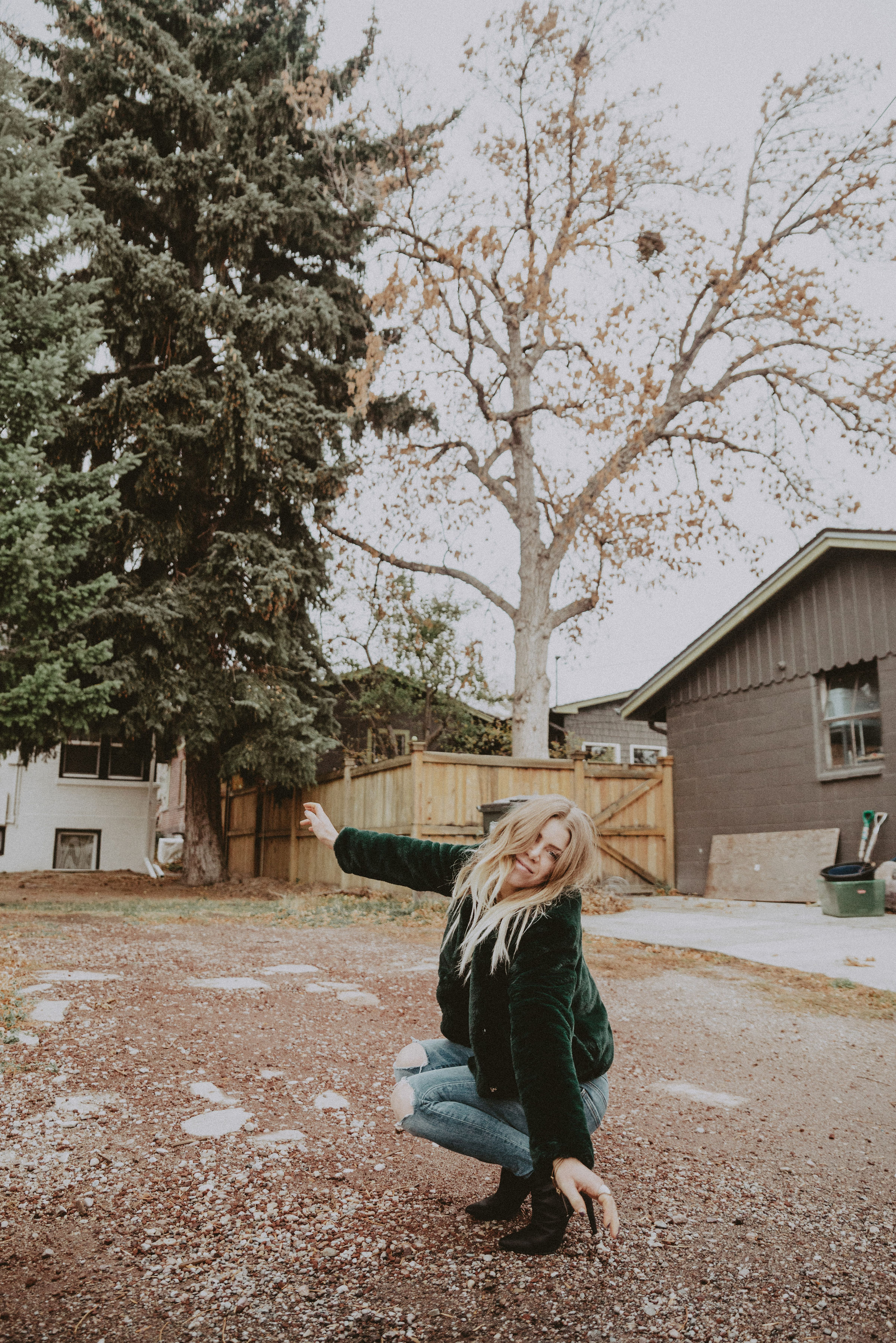Helping the H U R T
Images by Abbey Armstrong Photography
Color edited by me
“Hurt people hurt people. That’s how pain patterns get passed on, generation after generation. Break the chain today. Meet anger with sympathy, contempt with compassion, cruelty with kindness. Greet grimaces with smiles. Forgive and forget about finding fault. Love is the weapon of the future. ”
In the Babemba tribe of South Africa, when a person acts irresponsibly or unjustly, he is placed in the center of the village, alone and unrestrained. All work stops, and every man, woman, and child in the village gathers in a large circle around this individual.
Next, each person in the tribe speaks to the individual, one at a time, each recalling the good things the person in the center of the circle has done in his/her lifetime. Every incident, every experience that can be recalled with any detail and accuracy, is recounted. All his/her positive attributes, good deeds, strengths, and kindnesses are recited carefully and fully. This tribal ceremony often lasts for several days.
At the end, the tribal circle is broken, a joyous celebration occurs, and the person is symbolically and literally welcomed back into the tribe.
HOW BEAUTIFUL IS THAT.
I’ll go ahead and answer my own question: phenomenally beautiful
We all know hurt people hurt people, right? If you didn’t realize that then, well, now you know. It’ll explain A LOT on why people do what they do.
If people are acting a fool and are being rude/unkind/inconsiderate/nasty/etc, it’s because they’re not right with themselves. They’re insecure/traumatized/etc. They’re so consumed by pain and negativity, they have little to no capacity for empathy and love. And since anger feels better than pain/shame, people lash out. Here are some examples of people masking their pain/insecurity with hatorade:
An employee vilifying their boss for not promoting them
A jealous person blaming the other woman/man for “seducing” their partner (“You homewrecker! You ruined my relationship!”)
A business owner demonizing a competitor
An individual reviling a provider of well-intentioned constructive feedback
We could go pretty deep here exploring the many elements to this, but suffice it to say: Hurt people hurt people.
I’m grateful I realized this truth early on in my life. It’s softened the blow when I’ve had venom spit my way, or faced betrayal. Don’t get it twisted: it can still sting, but at least I understand the cause, and know not to take it personally. That’s crazy liberating. It’s like there’s an invisible bubble protecting your sense of self worth, deflecting the hate and doubt from permeating.
And just because you empathize with the causes of someone’s negative behavior doesn’t mean you condone it. That’s where boundaries come in. You can still love them while making it clear certain words/actions are unacceptable.
And also - and this can really bite the big one - be wise and humble enough to recognize the truth bombs in negative feedback. Sure, that person’s delivery could REALLY USE SOME FRIGGIN’ POLISHING, but try to remain open. Try not to shy away from reflection. View it as an opportunity to become even more of an allstar. If the feedback hit a nerve, that right there reveals an unhealed part of you. Lean into it. Figure out why.
And maybe the affected nerve is the one of caring too much of others’ opinions, and requiring external validation. The key to making it through the cleansing - but often brutal - fire of negativity-inspired self reflection is to operate on a solid foundation of self love. Knowing your shadows don’t define/control you, and neither do others’ opinions. Knowing you’re strong enough to brave the blows and use them to become even STRONGER and more self aware. Knowing you can directly face the negativity and extract what you need to evolve and get better, not bitter. This comes from loving yourself through ALL of your phases, even the ones where you feel beaten down or less than. You may not feel you’re quite there yet, but it is absolutely within your reach.
“The hardest thing in the entire world is to remain kind even when people aren’t. Remain honest even when you’re met with lies. Remain good even when things go terribly. And above all, understand the pain and heartbreak you feel isn’t a reflection of something you’ve done wrong or anything you lack. When people hurt you that means there is pain within them and something they lack that they haven’t figured out how to process or heal from. Hurt people hurt people. But don’t let them change you. Understand those are the people who need love the most.”
So I was listening to a podcast with Marianne Williamson on Oprah’s SuperSoul Conversations. Marianne introduced a novel perspective:
When people are physically injured, we typically react with compassion, and usually try to help. You’re bleeding, I’mma grab a bandage/tourniquet/etc. But if someone shows us (intentionally or - more often - unintentionally) their insecurities/traumas/etc, it’s easier for us to ignore/judge/dismiss. But they’re the people who need the most compassion!
Sure, as I mentioned, boundaries are key. You can empathize with people and not condone certain behavior, and it can be tricky distinguishing between empathizing and enabling. But no matter what, you can always offer love and kindness. Sometimes this must be from afar, but love is always the answer. We all get “hurt” and all need love. Some are better at healing themselves than others, but we all have healing power within us we can apply to both ourselves and others.
xx,
-w-
C U R I O U S
Images by Brooke Richardson Photography
“The future belongs to the curious. The ones who are not afraid to try it, explore it, poke at it, question it, and turn it inside out.”
Curiosity is a superpower.
“More than intelligence or persistence or connections, curiosity has allowed me to live the life I wanted.”
It opens doors, keeps you engaged, keeps you learning, keeps you growing, keeps you evolving…
I personally have an INSATIABLE curiosity. The more I learn, the more I want to learn. And the more I know, the more I realize I don’t know! (It’s a total kick in the pants)
“Curiosity about life in all of its aspects, I think, is still the secret of great creative people.”
Curiosity manifests in multiple ways: reading, asking, exploring, experimenting.
I read basically anything I can get my hands on, usually nonfiction (though fiction can be just as insightful!). The topics I read about range from international relations to economics to finance to psychology to history to spiritual enlightenment to personal development to health/fitness to government/politics to leadership to business to…yeah, you get the idea. The more you do it, the more fun it becomes - you start making connections not only in your current reading, but in other areas: past readings, past experiences, current experiences, current situations.
The world starts to come together and make more sense (note I said more sense, not complete sense! There will always be mysteries and unknowns - part of the ride, my friend).
“Wonder is the beginning of wisdom.”
Not only do you start to see how things fit together, but you are better equipped to make wiser decisions: with your money, your career, your personal life. Knowledge is P O W E R, baby.
And if reading isn’t enjoyable/feasible for you, then try podcasts and audiobooks! After you’re all caught up on The Nativist Podcast (shameless plug!), there are countless fantastic and informational podcasts out there in practically every genre/format/vibe imaginable.
“I have no special talents. I am just passionately curious.”
Need more motivation to become more curious?
In her book Dare to Lead on page 171, Brené Brown notes researchers are finding evidence that curiosity is correlated with creativity, intelligence, improved learning and memory, and problem-solving. A study published in the October 22, 2014 issue of the journal Neuron suggests the brain’s chemistry changes when we become curious, helping us better learn and retain information. H O L L A!
“Curiosity is one of the permanent and certain characteristics of a vigorous intellect.”
My curiosity also manifests in the questions I’m always throwing at people. I want to know DETAILS: background, wants, fears, ambitions, experiences, insights, philosophies, jobs, worldviews. I’m endlessly fascinated by people, social dynamics, psychology, motivations, and just LIFE in general.
Interestingly enough, I’m NOT a pryer - I respect boundaries and privacy, and play off the information the person provides me. I stay on the surface unless I either confirm willingness from the person or I sense their transparency.
“Be curious, not judgmental.”
And not only is curiosity better for you, it’s better for EVERYONE. It opens your mind and helps you co-exist more peacefully. Ignorance breeds fear and contempt. Illumination and knowledge punches fear and contempt in the face. We fear what we don’t know, whether it’s the stock market or a religion certain politicians like to tell us promotes terrorism.
“Freethinkers are those who are willing to use their minds without prejudice and without fearing to understand things that clash with their own customs, privileges, or beliefs. This state of mind is not common but it is essential for right thinking.”
It’s OUR responsibility to educate ourselves. To not rely on hearsay and rumors and news pundits. That’s when it gets dangerous (Nazi Germany, anyone?!). It’s on us to get out and explore and keep an open and curious mind.
Try not to just automatically accept information you receive, even if from an expert/trusted source. Identify possible biases/knowledge gaps; try to separate the facts from the underlying agenda. Let’s think for ourselves. Interact with foreign cultures, foreign ideas, foreign methods - so we can assess them ourselves and reach our own conclusions. It’s our civic duty, our personal duty, our moral duty.
Closed-mindedness is the enemy. Not only does it start wars and cultivate hate crimes, it fuels hatred and just makes life friggin’ MISERABLE for everyone. Everyyyyone. Not just the hated - those low vibing haters ain’t happy, either. Plus, it just limits everyone’s lives! It stunts innovation, rejects bliss, prevents growth. No bueno.
In his book Tribes, Seth Godin distinguishes between fundamentalism and curiosity.
Fundamentalist: considers whether a concept is acceptable to their worldview before exploring it.
Curious person: explores first and then either accepts or rejects the new idea.
This applies not only to religion, but life in general. Which are you? IMPORTANT QUESTION: Do you embrace the tension between your current framework and a new idea, or do you filter for what fits your current outlook?
As Godin states, curiosity has nothing to do with income, education, or organized religion. It has to do with a desire to try, a desire to push boundaries.
As I see it, curiosity is a weapon against mediocrity. It keeps us striving and evolving and innovating and ENGAGING IN LIFE. It helps us maximize our potential. Unlike stress and pressure which can be destructive and counter-productive, curiosity is a positive but powerful force propelling us forward. It illuminates the dark, reveals opportunities, generates ideas, yields solutions, smashes barriers, obliterates hatred, and nurtures self awareness.
“Curiosity will conquer fear even more than bravery will.”
“Replace fear of the unknown with curiosity.”
When we look at life through a lens of curiosity, the world automatically feels safer, better, cooler. It feels more interesting, more fun, more awe-inspiring. It feels less threatening, less dangerous, less baffling, less negative.
“There are those much more rare people who never lose their curiosity, their almost childlike wonder at the world; those people who continue to learn and to grow intellectually until the day they die. And these usually are the people who make contributions, who leave some part of the world a little better off than it was before they entered it.”
The mundane suddenly becomes A W E S O M E. Curiosity has a way of reinvigorating your life. I mean, think about it: We live in an incredible world, with all of its intricacies and connections and features: in nature, in societies, in EVERYTHING. Once you start paying attention and WONDERING - the world becomes and infinite wonderland.
“Don’t think about why you question, simply don’t stop questioning. Don’t worry about what you can’t answer, and don’t try to explain what you can’t know. Curiosity is its own reason, aren’t you in awe when you contemplate the mysteries of eternity, of life of the marvelous structure behind reality?
And this is the miracle of the human mind - to use its constructions, concepts, and formulas as tools to explain what man sees, feels and touches. Try to comprehend a little more each day. Have holy curiosity.”
That’s one of the reasons I absolutely love kids: they’re constantly asking why, trying to make sense of the world (you parents constantly bombarded with questions may find them less charming!). Why do some people say yes when they mean no? Why do we do what we do and say what we say? Why is the sky blue and why is steel strong and why can’t we just write checks to pay for everything?
Bottom line: Curiosity rules. Don’t think so?
xx,
-w-
l i s t e n UP
Images by Brooke Richardson Photography
“Courage is what it takes to stand up and speak; courage is also what it takes to sit down and listen.”
Listening is a superpower.
How many conversations have you had where the other person dominates the conversation and you leave thinking, “I know allll about their latest vacation/hobby/issue, but they know nothing about my life as of late?
Not so fulfilling.
On the flip side, have you ever had someone invest their total time and attention in you, and you walk away feeling heard and respected?
Mega fulfilling.
“Being heard is so close to being loved that for the average person, they are almost indistinguishable.”
To listen well, try pausing before disagreeing, or giving advice, or referencing your own experience. Sure, doing these other actions can be useful, but listening is paramount. Assess the need for the other actions. Listening is the priority, and the others should merely complement and support.
Active listening is encouraged! Some ways to actively listen:
Nod
Make eye contact
Lean forward
Supply (genuine!) verbal affirmations like “Sure”/“Thank you”/“I understand”
Paraphrase
“The first duty of love is to listen.”
Something I struggle with is interrupting - I’m constantly aware of and working on this with myself. My interrupting does come from a good place, however. I interrupt not because I deem what I have to say superior, but because I get so stoked on what the other is saying and it’s my way of “actively listening.” Showing I’m engaged and invested. This can easily be misperceived, though (and can be downright O B N O X I O U S and distracting) so I strive to minimize (and ultimately eliminate) my insertions. I always notice and appreciate when someone pays me the respect of attentively listening sans interruptions - my friends are brilliant at it.
“If you want to be listened to, you should put in time listening.”
And if you find yourself rattling on because you feel socially awkward and unsure of what to speak about - and talking about yourself is your default because you are your most familiar topic - there’s a win/win solution for that! A simple hack is to provide a bit of information about yourself (eg “I’m so pumped for skiing this year”) and then turning it to the other person(s) (eg “Do you ski or board?”). Prefacing with a fact about yourself makes it easy and effective for multiple reasons:
Contributes a familiar topic to work with and solves the problem of where to start
Makes you relatable and breaks the ice for the other person to share
Allows an opportunity to segue into related topics
Lets you off the hook from carrying the conversation, as many people like talking about themselves (for whatever reason - like you, they are most well-versed themselves/they have something to say/etc)
It establishes a natural flow
“Be a good listener. Your ears will never get you in trouble.”
What about those situations where people confide a heartbreak or challenge or stressor they’re facing? Don’t knock yourself out trying to come up with the perfect response/solution. Unless they expressly ask you, “What should I do?” more often than not, people simply crave a listening ear. Receiving their words with empathy and love is far more powerful than the wisest and timeliest response. Simply holding that space for them and allowing them to vent and feel their emotions can make all the difference and be more beneficial than “solving” their problem.
“The most basic and powerful way to connect to another person is to listen. Just listen. Perhaps the most important thing we ever give each other is our attention... A loving silence often has far more power to heal and to connect than the most well-intentioned words.”
If silence unnerves you, try to learn to be comfortable with it. Don’t rush to finish the other’s faltering sentence, or fill the gaps. This isn’t about you/your comfort - it’s about them. Allowing them the space to express themselves. Or just sit in supportive silence; simply your presence may suffice.
“I remind myself every morning: Nothing I say this day will teach me anything. So if I’m going to learn, I must do it by listening.”
“When you talk, you are only repeating what you already know. But if you listen, you may learn something new.”
I firmly believe we all have something to learn from one another (even if it’s how to have patience!). Running your mouth about what you know is definitely not the way to go about obtaining that knowledge from others. Even (or especially!) when you think you’re an expert on a topic - you’ll likely be surprised what you gain if you’re humble enough to sit back and listen/observe another’s perception regarding it. Maybe you’ll glean a different angle you hadn’t considered. This is where an open mind is K E Y. Try listening to learn, rather than listening to confirm [your current opinion]. At the very least, hearing the other side out will only strengthen your own position.
Removing your ego from the equation is crucial. Resist the temptation to flex and download all you know. There is ALWAYS more to learn. The minute you deem yourself a know-it-all is the precise minute you need to assess yourself, because that’s a sure sign your ego has hijacked you and stunted your growth. So tell your ego to buzz off and listen even harder.
“The sign of intelligence is that you are constantly wondering. Idiots are always dead sure about every damn thing they are doing in their life.”
“Knowledge speaks, but wisdom listens.”
And in those heated moments where you’re battling with another and spinning your wheels in conflicted frustration, the best way to defuse the situation is to take a deep breath, step back, and…L I S T E N. Truly listen. Not only will this likely disarm your “contender,” but this simple action shows you value and respect them enough to consider their view. That right there has far-reaching effects. It shifts your approach from a place of one-sided triumph and win-lose to a place of resolution and win-win. It’s a clear reflection of your respect for them and conveys your willingness to remedy the situation and meet them halfway. It can make ALL the difference.
“Listening is a very deep practice... You have to empty yourself. You have to leave space in order to listen...especially to people we think are our enemies - the ones we believe are making our situation worse.
When you have shown your capacity for listening and understanding, the other person will begin to listen to you, and you have a chance to tell him or her of your pain, and it’s your turn to be heard. This is the practice of peace.”
This is especially important when you’re feeling triggered. How many times have you been blinded by emotions/anger, then realize you misheard/misperceived the other? I know I have. Much can be lost in communication - for a number of reasons. Consider you might’ve misunderstood/assumed/pre-concluded. Hear the other out (this is where gentle paraphrasing is especially helpful!) to ensure you’re catching what they’re throwing.
And sometimes the other person won’t pay you the same respect of listening to you. It is what it is. It’s annoying as hell, sure, but you can only control yourself. Rest assured you did what you could to resolve the matter. When that happens, my tried-and-true remedy involves time and distance (and my Scream Spotify playlist I created to express the fire I feel; Body Combat also helps! ;) ).
Happy listening.
xx,
-w-
F O R G I V E N E S S
Images taken by Abbey Armstrong Photography
Images edited by Brooke Richardson Photography
“Forgiveness means giving up all hope for a better past.”
Think about the last time you were physically hurt. You likely did something to address the pain, right? Popped an aspirin, threw on a rad Power Rangers Band-Aid (because everyone knows cool BandAids are more effective than regular, boring Band-Aids). Even if you try to avoid medicine, you probably took some measure to ease the discomfort (cold washcloth/rest/essential oils/etc). How long did you wait to do something about it?
In her book You Are A Badass, author Jen Sincero brilliantly articulates the power of forgiveness. She highlights the distinction between how we typically treat physical pain as opposed to emotional pain. As she notes, we're typically very proactive and quick on the draw to banish our physical pain...even if this involves the initial discomfort of pouring stinging disinfectant on an open wound or powering through getting stitches. We're motivated to do it right away, because we're intent on our ultimate goal of R E L I E F.
“They caused the first wound, but you are causing the rest; this is what not forgiving does. They got it started, but you keep it going. Forgive and let it go, or it will eat you alive. You think they made you feel this way, but when you won’t forgive, you are the one inflicting the pain on yourself.”
However, when it comes to emotional pain, we're apparently down to see just how much torture we can endure, wallowing in our "guilt, shame, resentment, and self-loathing, sometimes for entire lifetimes." Ring any bells?
“Holding onto anger is like drinking poison and expecting the other person to die.”
We prolong our misery by clinging to our ill feelings. We do this by badmouthing our boss/fantasizing about telling our overbearing mother-in-law where to stick it/pondering the many reasons our enemies are wrong and the many reasons we're right. As Sincero points out, we relive our worst moments over and over and over instead of letting them go. Doing so, we pick at the emotional scabs, thereby refusing healing and preventing the pain from subsiding.
“Reminder: Forgiveness is a process. A choice you have to make over and over, until you’re free from the negative feelings.”
I'm sure this isn't the first time you've heard this. We all know we should release our resentments and let that shiz go. It's one thing to know it - it's another to do it. And I can completely relate. I'm definitely not immune to the self-inflicted pain by clinging to past wrongs others have done me, particularly the big whammies. Through effort and mindfulness it's become much easier, but I still have my moments. Rarely do the negative feelings immediately dissolve upon deciding to forgive. They can linger, sometimes re-surfacing after you thought you'd fully released them. Depending on the severity of the wrongdoing, forgiveness is usually a process. A decision you have to make repeatedly. Be patient with yourself and know it's okay if you occasionally get sucked back into the angry/hurt vortex - all that matters is that you find your way back out.
“When someone does something wrong, don’t forget all the things they did right.”
We all have our own stories of people royally screwing us over. It's life. We've (unintentionally or otherwise) done wrong by others. Here's what I remind myself to make the process easier:
- Being a human is hard sometimes, and a little grace toward someone goes a long way. Hurt people hurt people.
- I'm so grateful for the forgiveness others have extended to me. Who am I to withhold it from others?
- it's friggin' EXHAUSTING to hang onto hurt/anger/resentment.
- Empathy, understanding, and compassion dissolve anger/guilt/resentment. I always try to understand why the person did what they did - every time, I'm able to trace it to fear/insecurity/hurt the other person is feeling. This immediately reminds me of our collective humanity, and effectively softens my heart toward them. This doesn't mean you condone their actions, but it allows you to empathize, accept the situation, and move onnnn.
- People fight battles we know nothing about.
- Jumping to conclusions and automatically assuming ill intent often proves wrong. Allowing the person the benefit of the doubt is usually the best tactic. If possible, communicate with the other person to express your concern and provide them with a chance to explain themselves.
- It's often not about you. Step back and be honest with yourself: Are you allowing your insecurities to color your judgment?
IMPORTANT NOTE: This also applies to self-forgiveness!! Be kind to yourself! Forgive yourself for your own indiscretions and slip ups, and be patient with yourself as you work to forgive others.
xx,
-w-

